MODES OF KNOWLEDGE
A Quranic Perspective On Scientific Knowledge
The Qur'an offers profound insight into the nature of true knowledge when it states that the believers يَتَفَكَّرُونَ فِى خَلْقِ ٱلسَّمَـٰوَٰتِ وَٱلْأَرْضِ (Al-'Imran 190-191), "meditate on the creation of the heavens and the earth."
A science consists of three elements: the method, the explanatory principles (or causes), and the object, which is the thing being studied. Different sciences may share the same object but differ in their explanatory cause and method. For example, both a mason and an engineer may know how to make a wall stand. The object is the same, but the reasons each gives for that fact are different, and the method of their knowledge differs. The mason knows things much more through experience, whereas the engineer can explain through subtler causes, such as the chemical nature of materials.
It becomes evident that we can create a hierarchy of sciences, in which the superior science is the one that explains objects through higher causes and follows a more elevated method of understanding. Furthermore, a superior science always directs the subordinate science; hence, the engineer is above the mason and not the reverse.
Here, we may ask: Is there a Supreme Science that considers all objects through the highest cause and follows the deepest method of understanding? It seems that this is precisely the Science alluded to in the verse *وَيَتَفَكَّرُونَ فِى خَلْقِ ٱلسَّمَـٰوَٰتِ وَٱلْأَرْضِ*:
- Its method is fikr, "meditation." What is meditation? Unlike the analytical method adopted in secular sciences, meditation is an aggregative movement rather than a disaggregative one. Meditation seeks to find the deep meaning of the object and its relation to the total order, instead of focusing on breaking the object into smaller parts and investigating its material structure.
- The explanatory cause is khalq, "creation," which is an act of Allah. Therefore, true science seeks to see the divine action in the heavens and the earth and how everything between these two poles manifests the nature of Allah. Hence, the explanatory cause is Allah Himself, under His name of Creator (al-Khaliq). Only a divine speech can truly express divine action. That is why the best expression of this supreme science is the Qur'an.
- The object is "heaven and earth," which are not limited to this visible heaven and earth. These are mere instances of the great Heaven and Earth, which are the principles of duality, or the very possibility of creation itself — a departure from the primordial One.
If this is the true science, all other sciences and theories about creation only make sense insofar as they are ordered to it or serve as its foundation. Any science or perspective not aligned with this superior perspective will inevitably suffer from an intrinsic and insurmountable limitation:
- Its analytical method, which is divisive by nature, will only lead to further division. This is precisely what happened with the People of the Book when 'ilm (knowledge) came to them—not the true science of Allah, which is unifying, but the analytical science, which is disaggregative: *وَمَا تَفَرَّقُوٓا۟ إِلَّا مِنۢ بَعْدِ مَا جَآءَهُمُ ٱلْعِلْمُ بَغْيًۢا بَيْنَهُمْ ۚ* "And they did not divide except after knowledge had come to them, out of rivalry among themselves."
This division in the order of knowledge even generates division in the order of wills, resulting in rivalry among men (baghyaa), as can be observed in the presence of vanity and envy in scientific circles. Thus, no matter how long discussions may continue, they will never lead to the knowledge of the Truth (al-Haqq), which is also a divine name, but only to partial truths. When separated from the perspective of the total truth, these partial truths become veritable falsehoods that confuse the heart.
Publication Date
January 5, 2025

